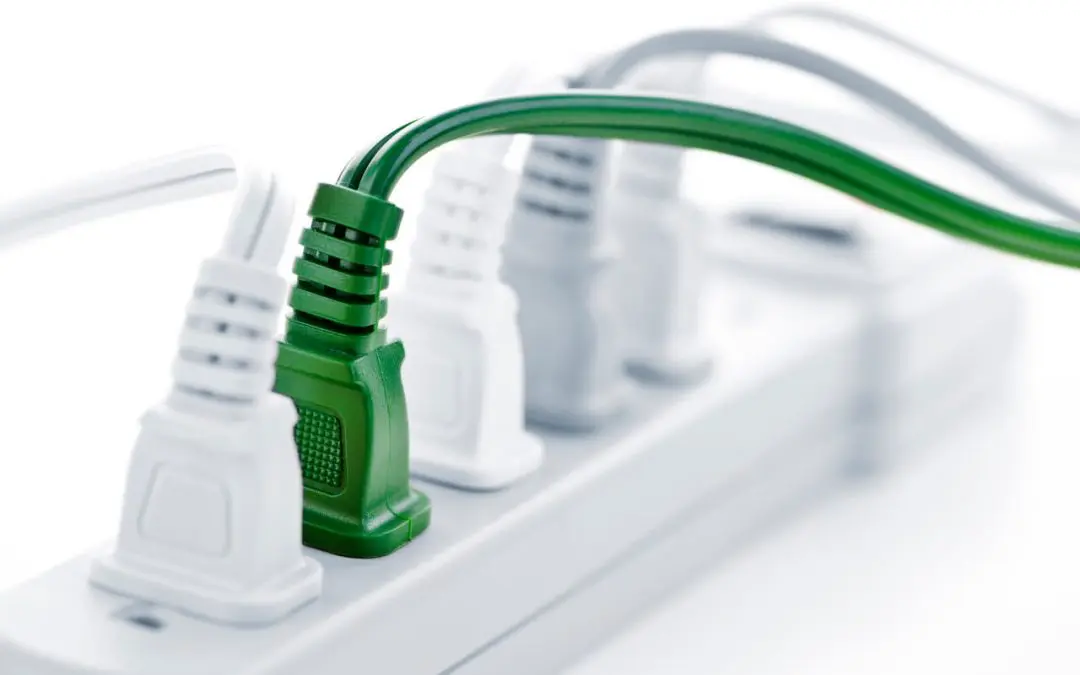Electrical systems are integral to modern homes, so understanding how to maintain their safety is crucial. Many electrical problems, from minor to significant issues, are preventable with basic knowledge and a proactive approach. This guide aims to provide homeowners with the information needed to protect their homes from electrical hazards.
Simple Steps to a Safer Home
Inspect Cords and Plugs Regularly
Routinely check all electrical cords for fraying, cracks, or damage. Damaged cords should be replaced immediately. Ensure plugs fit snugly into outlets. A loose plug may indicate a worn outlet needing replacement. Never force a three-pronged plug into a two-pronged outlet, and avoid removing the grounding prong.
Avoid Overloading Outlets and Circuits
Each outlet and circuit is designed to handle a specific amount of electrical current. Plugging too many high-power appliances into a single outlet or using too many devices on one circuit can lead to overheating, tripped breakers, and fires. Frequent breaker trips signal an overloaded circuit. Consider redistributing appliances or consulting an electrician about adding new circuits.
Use Appliances Safely
Always follow the manufacturer’s instructions for all electrical appliances. Keep heat-producing appliances, such as toasters and space heaters, away from flammable materials. Unplug small appliances when not in use, especially in the kitchen and bathroom. Never operate electrical appliances near water.
Be Mindful of Water and Electricity
Water and electricity are a dangerous combination. Keep electrical devices and cords away from sinks, bathtubs, and other water sources. If an appliance falls into water, do not retrieve it until it is unplugged and the power is off. The safest approach is to turn off the power at the breaker box first.
Install and Maintain Safety Devices
Ensure homes have working smoke detectors and carbon monoxide detectors, and test them monthly. If GFCI (Ground Fault Circuit Interrupter) outlets are not present in areas with water, consider having them installed by a qualified electrician. Arc Fault Circuit Interrupters (AFCIs) provide additional protection against electrical fires caused by arc faults in wiring.
Know When to Call a Professional
While simple safety checks are manageable for homeowners, some tasks require a licensed electrician’s expertise. If flickering lights, unusual buzzing sounds from outlets or switches, frequent breaker trips, hot outlets or switch plates, or a burning smell are noticed, these are signs of serious electrical issues requiring immediate professional attention. Attempting complex electrical repairs without proper training can be extremely dangerous.
Following these guidelines and remaining vigilant significantly reduces the risk of electrical hazards in a home. Proactive maintenance and awareness contribute greatly to peace of mind and the safety of occupants.
FAQs
My circuit breaker keeps tripping. What should be done?
A consistently tripping circuit breaker indicates an overload or a short circuit on that particular circuit. First, unplug some appliances from the circuit to see if an overload is the cause. If it continues to trip after reducing the load, or if it trips immediately after being reset, there might be a short circuit or a fault in the wiring. In such cases, it is crucial to call a qualified electrician to diagnose and fix the problem.
Is it safe to use extension cords permanently?
No, extension cords are designed for temporary use only. Permanent use can lead to overheating, fire hazards, and damage to the cord over time. If consistent additional outlets are needed in a particular area, it is best to have a qualified electrician install additional permanent outlets.
How often should a home’s electrical system be inspected?
A comprehensive electrical inspection is generally recommended every 5–10 years, or when purchasing an older home, undertaking a major renovation, or noticing any persistent electrical issues. Regular inspections can identify potential hazards before they become serious problems.
What is the difference between a GFCI and an AFCI outlet?
A GFCI (Ground Fault Circuit Interrupter) protects against electrical shocks by detecting imbalances in the electrical current that indicate a ground fault. An AFCI (Arc Fault Circuit Interrupter) protects against electrical fires by detecting dangerous electrical arcs in wiring that can lead to overheating and ignition. Both provide important layers of safety, addressing different types of hazards.
Can electrical repairs be done by oneself to save money?
While simple tasks like changing a light bulb or replacing a faulty switch plate cover might be manageable, a licensed and qualified electrician should always perform any work involving wiring, circuit breakers, or major appliance installations. Attempting complex electrical repairs without proper training can be extremely dangerous, leading to severe injury, electrocution, fire, and potential damage to the home’s electrical system, and may even void home insurance. Safety is paramount and justifies the investment in professional expertise.
Jones & Cooper Home Inspections provides home inspections to customers in the Metro Louisville area. Contact us to request our services.

